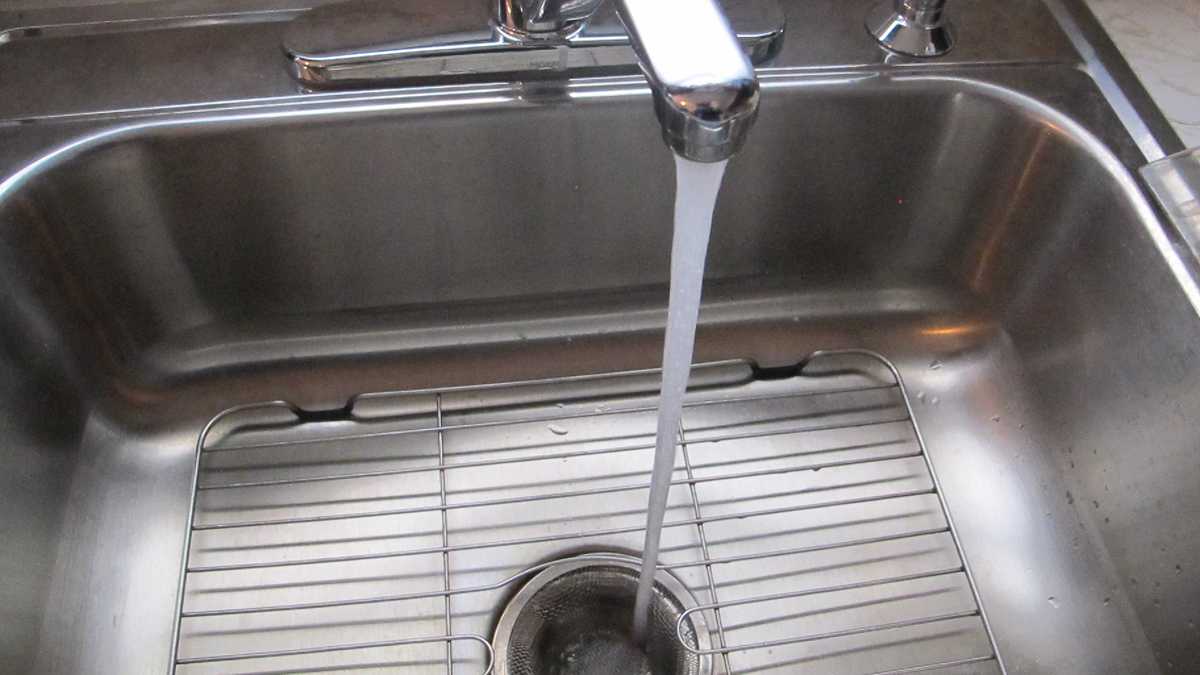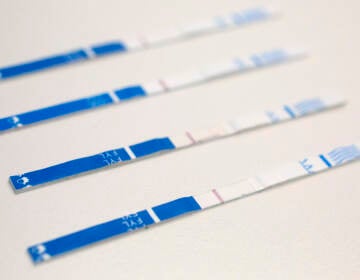Trenton Water Works alerts homeowners of high lead levels, warns against drinking water

(NewsWorks file photo)
Dangerously high lead levels have been discovered in water at more than a dozen of nearly 120 homes and buildings tested recently by the Trenton Water Works.
The utility notified thousands of Mercer County residents, as required by law, but not officials in at least one of Trenton’s neighboring townships that use its water. Because more than 10 percent of the homes it sampled in the past six months had lead levels higher than the action level set by the Environmental Protection Agency, the utility must alert its customers.
“Anytime there’s something in your water that’s above the legal limit, you should be worried. As the health officer, I’m worried,” said Jeff Plunkett, who has served in neighboring Hamilton Township’s health department for more than 30 years. About two-thirds of homes there are supplied by Trenton Water Works.
Lead leaches into tap water when corrosive water flows through older pipes, most commonly lines that connect a house’s plumbing to the street. The metal is so toxic that the EPA requires water supplied by public and private water systems to contain no more than 15 parts (of lead) per billion. The Centers for Disease Control and Prevention maintains that no amount of lead in the body is safe.
The recent test found dangerously high lead levels in 14 out of 119 homes and buildings tested: six in Trenton, four in Hamilton, three in Lawrence, and one in Ewing. One site had more than seven times the EPA’s action level.
Plunkett said he didn’t hear about the lead advisory until customers began calling the Township’s offices. Trenton Water Works didn’t tell anyone in his offices about the advisory — not even Hamilton Mayor Kelly Yaede.
“Every time they’ve had an issue, we’ve kind of been blindsided by it. And then we’re in scramble mode to find out what’s going on and how to address it,” Plunkett said. “One of our great concerns is the lack of professionalism.”
Plunkett said he had to call the state Department of Environmental Protection to learn what happened.
DEP spokesman Jeff Hajna said there’s no reason to panic.
“For the average person, realistically, it is manageable, by simply flushing your lines,” Hajna said. “That’s the key. When the water hasn’t been used for six or eight hours, that’s when the lead can start to leach in. And if you’re using water throughout the day, then it really isn’t an issue.”
Encountering lead — and how to counter it
Isles Inc., a nonprofit based in Trenton, offers incentives and encourages residents to test their homes for lead. Elyse Pivnik, Isles director of environmental health, said the nonprofit has tested the water at more than 180 homes so far. It will even pay families $5 to test for lead.
“Lead poisoning robs a child of their full potential,” Pivnik said. Acute poisoning, which a toddler might incur by chewing on a lead-painted surface or ingesting dust, is likely to require a trip to a hospital. Some cases can be fatal. And Pivnik said it’s important to recognize the toll that gradual lead exposure can take over time.
“Children who have been exposed to lead are more likely to have behavior problems in their early years and be suspended from school,” Pivnik said, adding that research also suggests a greater chance of incarceration later in life.
It’s crucial for teachers and school administrators to recognize that lead may be to blame for a student’s behavior, she said.
“The more insidious damage is when you have relatively low levels of exposure, and a child has trouble concentrating and sitting still and can’t memorize things because it affects short-term memory,” she said. “And there’s auditory problems, so you’re trying to learn to read, and you become discouraged. Well, they’re not symptoms that immediately scream lead, but when you’re taking them all together, and you know the child’s background, it’s lead.”
Still, an estimated 5.5 million to 7.1 million lead service lines still remain in use today.
Hajna advised taking a realistic approach to this decades-old problem.
“You’re never going to totally eliminate it. You know, you can’t wave a magic wand and make 50,000 houses suddenly have PVC piping instead of the existing piping that they have. And that’s just the nature of it,” he said.
Some tips
In addition to running the faucet for two minutes before drinking or cooking, families might want to get their water tested by an independent lab, Hajna said. Test kits are also available at home improvement stores.
Boiling doesn’t get rid of lead — the hot water dissolves the metal and makes the contamination worse. For baby formula and other hot drinks, the CDC recommends using cold water heated in a microwave or on the stovetop.
Any water filter should meet the standards of the National Sanitation Foundation. Still, a filter only removes lead at one faucet.
WHYY is your source for fact-based, in-depth journalism and information. As a nonprofit organization, we rely on financial support from readers like you. Please give today.





